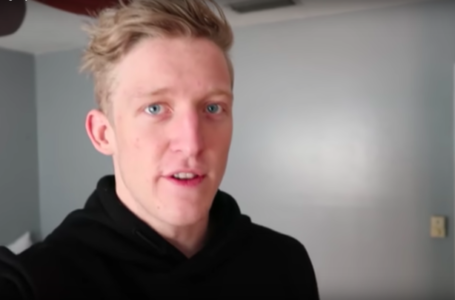AS TOLD TO ERIK LUNDEGAARD
Last May, Turner Tunney, 21, aka “Tfue,” one of the world’s foremost professional players of the online video game Fortnite, sued the gaming organization that represents him, FaZe Clan, arguing that the contract he signed with the group is illegal and oppressive. The dispute could have repercussions for the entire gaming world. Bryan J. Freedman, 55, represents Tunney.
The gaming and streaming space is probably the fastest-growing area of commerce around. Fortune magazine came out with an article that said they anticipate $152 billion of revenue in the space in 2019. It’s $97 billion in the movie business and $19 billion in the music business.
As a 19- to 20-year-old-kid, Turner came out to California [from Florida], hung out and partied with the FaZe Clan people, and was presented with the contract, to which he made no changes, and signed the contract without the benefit of a lawyer.
I have a lot of experience with entertain-mentrelated matters, in particular representing management companies and talent agencies, while also representing artists—as defined in the Talent Agencies Act—against managers and talent agencies. So the first question that came to mind was, “What’s the term of the contract and what are the percentages?” Talent agencies generally have a 10% model. If they procure employment for you, the talent agency would be entitled to 10% of the proceeds of that employment. I’ve seen it as high as 20%.
FaZe Clan had a written contract that provided for 80% going to them in the event that FaZe Clan brought them what are called “brand deals”—basically sponsorships. And if Turner got his own brand deals without any help from FaZe Clan, Turner would have to give 50% of the proceeds to them. I’ve seen a lot of contracts and I’ve never seen anything even remotely close to being that egregious.
And as I looked into the kinds of services Turner was providing, I saw it not only involved playing video games, but the primary activity was creating content through videos placed on YouTube and streaming on Twitch. I thought he sounded a lot like an entertainer/artist, not simply a video game player.
So I went to the Talent Agencies Act and I looked up the definition of an artist. [See sidebar.] No question about it: Turner was considered an artist as it related to the Talent Agencies Act. If you’re creating videos and editing videos, and you’re being paid for that purpose, that qualifies.
According to the Talent Agencies Act, you’re required to have a talent agency’s license, which gets approved by the labor commissioner. And before you present to your potential clients as a licensed agent, you need to get the contract approved by the California Labor Commissioner.
Now, no California labor commissioner would ever approve a contract that had an 80/20 split, and that had a closed-term covenant not to compete. The contract was void under California law—or at least those provisions were illegal under California law.
Another glaring problem was a clause that referred to Turner as an independent contractor, although the rest of the contract said he had to work exclusively for them. I mean, they kind of controlled his every move. The first six months, at their suggestion, he had actually been living out of this [FaZe Clan-rented] house in Hollywood Hills. What these esports teams do is they get a huge house, they put all their gamers in the house, and they train them and feed them and do all that stuff so that they can get even better at video games. I mean, some of these kids are like 14, 15 years old.
So, especially under California union laws, it didn’t seem like he was anything near an independent contractor. But even if he was, as they say he was, there’s a clear law, under 16600 of the Business and Professions Code, which deals with the post-term restrictions, and other restrictions [so] that you cannot, in California, tell an independent contractor that they cannot compete.
I had a two-pronged approach. One, I filed a petition for the termination of an action in front of the labor commissioner, alleging a violation of the Talent Agencies Act by the illegal procurement of employment by FaZe Clan without having a talent agency license, and sought to void the contract, and to disgorge any monies paid to FaZe Clan in connection with the commission by an unlicensed talent agency. I also filed an action in the Superior Court in the state of California, and that was based on the 16600, based in part on part of the labor code violations.
The reason I was so passionate about this case in particular, and this area of law, is because, with kids that age and the end of your career being so young, it’s so important that they sign a contract that comports with the law so they can try to make as much money as they can during that short period they’re employable. I don’t know if it’s physical in nature, or if it’s the skill set, but when people get a little older they’re not as quick. Typically, when you look at the best esports players, they’re kids—all under 25.
I wouldn’t consider myself a gamer. I played for enjoyment. I was tough in Pong.
I’m an entertainment litigator. Some of my past clients have included anyone from Octavia Spencer to Vin Diesel. I represented Megyn Kelly in connection with her exit from NBC. I represented Megan Colligan in connection with her exit from Paramount. I’ve represented UTA for years. A lot of my cases involve entertainers in contract disputes. More times than not, I’m on the side of showing that there’s some sort of breach of a contract.
I certainly hope that [the case] continues till it makes law—as long as my client is in favor of that. I believe there’s law that needs to be made in the gaming space: that people without licenses shouldn’t be procuring employment, and that these gamers should be protected, just like artists are protected under the Talent Agencies Act. I mean, you’re having these young people sign these contracts; and initially, when they sign the contract, they’ve got no representation. They’ve got no one.
There are so many laws about child actors—what you can do, what you can’t do, the fact that you have to have a guardian ad litem. But there is nothing around gaming.

Cal. Lab. Code § 1700.4
“Artists means actors and actresses rendering services on the legitimate stage and in the production of motion pictures, radio artists, musical artists, musical organizations, directors of legitimate stage, motion picture and radio productions, musical directors, writers, cinematographers, composers, lyricists, arrangers, models, and other artists and persons rendering professional services in motion picture, theatrical, radio, television and other entertainment enterprises.”





